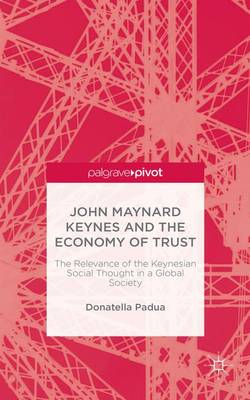Why does trust collapse in times of crisis? And when, instead, does it become a driver of growth, generating value? This book offers an analysis of the dynamics of trust through a sociological interpretation of the thought of John Maynard Keynes, the first economist to understand the full extent of the confidence-lever. In the context of the 2007 crisis and following recession, the innovative concept of Economy of Trust explains how trust spontaneously replaces the weakened institutional system of quality assurance and control and generates value. Indeed, the deficiency of such a system has become the ideal breeding ground for the growth of the Nominal Economy: the economy that distorts the perception of reality as it widens economic and social disparities, unbalances relationships between risk and wealth in the global society and dissolves the bonds of responsibility. In this way, trust is channeled towards strong "new powers", such as hedge funds companies, rating agencies and investment banks. Within this context, only targeted policies of Economy of Trust can funnel the 'store of value' effect generated by trust towards positive intents of building social capital.
Padua has asked the question: How is it possible to build value via trust? She has answered through the construction of a compelling argument for the creation of a balanced global economy and a fairer distribution of wealth based upon that elusive quality of trust. -Garry Titterton, former Visiting Professor, Executive MBA Course, Tonjin University, Shanghai, Co-author Brand Storming, and reviewer for Palgrave McMillan, Business Management.
- ISBN10 113746724X
- ISBN13 9781137467249
- Publish Date 17 October 2014 (first published 1 January 2014)
- Publish Status Active
- Publish Country GB
- Publisher Palgrave Macmillan
- Imprint Palgrave Pivot
- Format eBook
- Pages 130
- Language English
